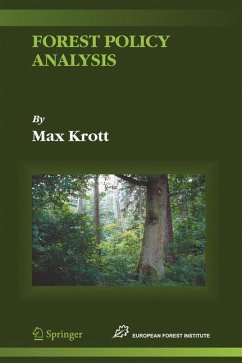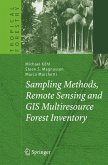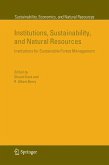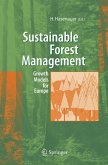Although forest policy is an established course in most European university forestry curricula, apart from a special predilection of the teacher, its content varies from country to country according to the position of the forest sector in the domestic economy and society. In some countries, forestry is the backbone of a strong wood-processing industry, in others, recreational uses and amenity values of forests dominate. Despite these differences, all countries have in common the fact that the diversity of interests in forests has increased. Although timber production will not lose its importance in the future, as timber is a renewable resource, the demand for non-wood products and services has increased considerably. This is best reflected by the new notion of sustainable forest management which strives at the reconciliation of economic, ecological, social, cultural and spiritual interests in forests. In addition, the diversity of stakeholders has increased. Forestry is no longersolely the topic of forest associations and forest administration, but also of a multitude of governmental and non-governmental organisations dealing with activities which either affect forest management or are affected by it. Finally, the relationships of the various stakeholders, with diverse interests and varying empowerment, have become more complex, because in some issues the relationships are compatible, and in others, not. Bargaining on forest issues no longer takes place on a national level alone, but also on European and international levels, because many forest policy issues are transboundary.
Hinweis: Dieser Artikel kann nur an eine deutsche Lieferadresse ausgeliefert werden.
Hinweis: Dieser Artikel kann nur an eine deutsche Lieferadresse ausgeliefert werden.
Aus den Rezensionen: "Max Krott verfolgt ... das Ziel, die Leserschaft mit einer Analyse der Forstpolitik vertraut zu machen. Das Buch sollte eine Einführung in die Forstpolitik in Europa aus sozialwissenschaftlicher Perspektive darstellen ... Krott versucht, eine Brücke zwischen Politik- und Forstwissenschaften zu schlagen. ... Der Autor richtet ein besonderes Augenmerk auf die Akteure und Instrumente der Forstpolitik ... Dabei diskutiert er insbesondere die Rolle des Staates in der Forstwirtschaft ... Zusammenfassend handelt es sich um eine handliche Darstellung wesentlicher Aspekte der Forstpolitik Deutschlands ..." (TIANA A. MOSER, in: Schweizerische Zeitschrift für Forstwesen, 2007, Vol. 158, Issue 3-4, S. 74)








